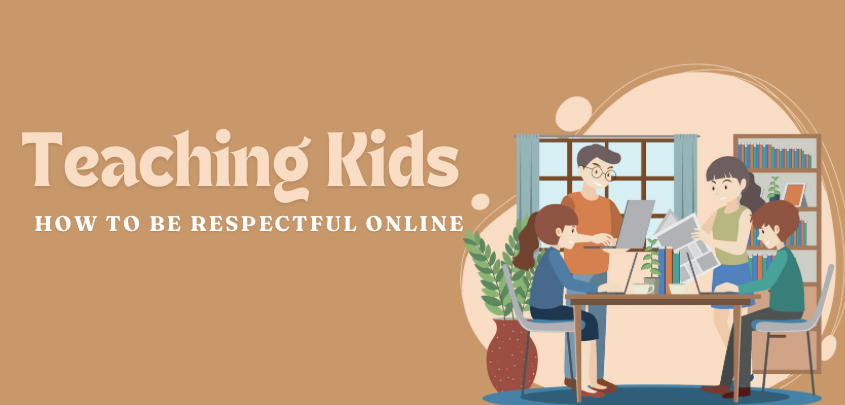
15, Jul, 2024
Teaching Kids How To Be Respectful Online
In today’s technology-driven world, children are spending an increasing amount of time online. From social media and messaging apps to online games and educational platforms, the internet offers a vast playground for young minds. However, with this increased online presence comes the responsibility of teaching kids how to behave respectfully in the digital world. Here are some key strategies for guiding children toward respectful online behaviour.
- Understanding Digital Citizenship-Digital citizenship involves the responsible and appropriate use of technology. Teaching kids about digital citizenship means educating them on the norms of proper and responsible behaviour when using technology. This includes helping them understand the impact of their online actions and the importance of respectful communication.
- The Golden Rule Online-A straightforward way to teach kids respectful online behaviour is by applying the Golden Rule: treat others as you want to be treated. Encourage children to think before they post, comment, or share anything online. Remind them that there is a real person on the other side of the screen who can be impacted by their words and actions.
- Setting Clear Guidelines-Establishing clear guidelines for online behaviour is crucial. Set rules about what is acceptable to share, how to communicate with others, and what sites and apps are appropriate to use. Discuss the consequences of inappropriate behavior, both in terms of parental discipline and potential online repercussions, such as being blocked or reported.
- Monitoring and Mentoring-Actively monitoring your child’s online activities is crucial, especially for younger children. Utilize parental controls and regularly check in to see what your child is doing online. However, monitoring should be paired with mentoring. Engage in conversations with your children about their online experiences, listen to their concerns, and provide guidance on navigating tricky situations.
- Teaching Empathy and Kindness-Empathy and kindness are crucial for respectful online behaviour.Prompt your children to think about the potential impact of their actions on others. Discuss real-life examples of cyberbullying and its harmful effects. Promote positive online interactions by urging them to support their friends and stand up against bullying.
- Leading by Example-Children often mimic the behaviour of their parents, so it’s essential to model respectful online behaviour yourself. Show your kids how to communicate politely, handle conflicts maturely, and use the internet responsibly. Demonstrate how to disagree respectfully and avoid engaging in negative behavior such as trolling or spreading rumours.
- Educating on Privacy and Security-Respecting online behaviour includes grasping the significance of privacy and security. Educate your children about the importance of not sharing personal information, like their home address or phone number, and encourage them to use strong, unique passwords for their accounts. Discuss the dangers of oversharing and emphasize the significance of safeguarding their digital footprint.
- Encouraging Open Communication-Foster an environment where your children feel at ease discussing their online experiences with you. Encourage them to report any uncomfortable or inappropriate interactions and assure them that they can seek your help without worrying about being punished. Open communication fosters a sense of support and increases the likelihood that children will adhere to the guidelines you’ve established.
Teaching kids respectful online behavior is an ongoing process that requires patience, understanding, and consistent effort. By fostering a strong foundation of digital citizenship, empathy, and open communication, you can help your children navigate the digital world safely and respectfully. Remember, the goal is to equip them with the skills and knowledge they need to be responsible and kind digital citizens.
